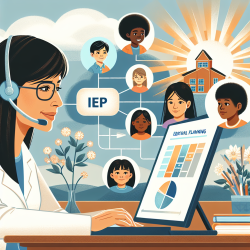Introduction
The COVID-19 pandemic has undeniably altered the landscape of healthcare, especially for vulnerable populations. A recent study titled Mixed-methods study exploring health service access and social support linkage to the mental well-being of Canadian Indigenous pregnant persons during the COVID-19 pandemic sheds light on the challenges faced by Indigenous pregnant persons in Canada. As practitioners, understanding these challenges and implementing data-driven strategies can significantly improve outcomes for this demographic.
Key Findings from the Study
The study highlighted several critical findings:
- High rates of depression (52.7%) and anxiety (62.5%) among Indigenous pregnant persons.
- 76.8% experienced disruptions in prenatal care, including appointment cancellations.
- Service disruptions and reduced quality of prenatal care negatively impacted mental well-being.
- Social support, including cultural connections, was a significant coping mechanism.
Implications for Practitioners
For practitioners, these findings emphasize the importance of ensuring consistent and culturally sensitive prenatal care. Here are some actionable steps based on the study:
- Enhance Access to Care: Advocate for policies that ensure uninterrupted access to prenatal services, even during pandemics.
- Promote Social Support Networks: Encourage the involvement of family and community support systems, which are crucial for mental well-being.
- Culturally Sensitive Practices: Incorporate traditional healing practices and cultural rituals into prenatal care plans.
- Utilize Technology: Leverage telehealth solutions to provide continuous care and reduce the impact of service disruptions.
Encouraging Further Research
While this study provides valuable insights, it also opens avenues for further research. Practitioners are encouraged to explore:
- The long-term effects of prenatal care disruptions on child development.
- The role of traditional birthing practices in improving outcomes.
- Strategies to improve trust and engagement with healthcare systems among Indigenous communities.
Conclusion
Understanding and addressing the unique challenges faced by Indigenous pregnant persons during the COVID-19 pandemic is crucial for improving their mental well-being and overall health outcomes. By integrating the study's findings into practice, practitioners can play a pivotal role in enhancing care quality and accessibility for this population.
To read the original research paper, please follow this link: Mixed-methods study exploring health service access and social support linkage to the mental well-being of Canadian Indigenous pregnant persons during the COVID-19 pandemic.










